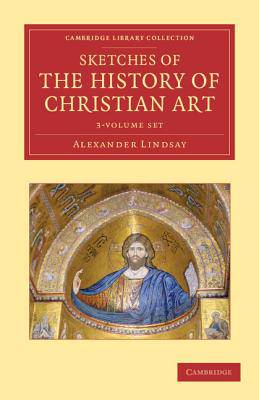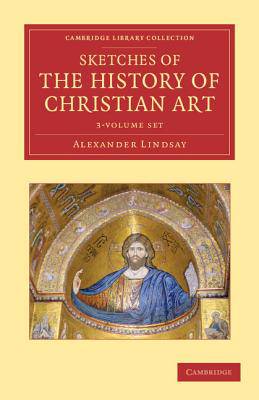
- Afhalen na 1 uur in een winkel met voorraad
- Gratis thuislevering in België vanaf € 30
- Ruim aanbod met 7 miljoen producten
- Afhalen na 1 uur in een winkel met voorraad
- Gratis thuislevering in België vanaf € 30
- Ruim aanbod met 7 miljoen producten
Zoeken
Sketches of the History of Christian Art 3 Volume Set
Alexander William Crawford Lindsay
€ 113,45
+ 226 punten
Omschrijving
Alexander Lindsay (1812-80) was the head of an aristocratic family who owned vast coalfields in Lancashire, generating enormous wealth. Educated at Eton and Trinity College, Cambridge, he spent the majority of his time travelling in Italy, collecting, and writing on a variety of subjects, including art, the Indo-Aryan race and the Etruscans. This important work, published in three volumes in 1847, surveys Christian painting and sculpture. Addressing Romance literature of the Middle Ages, iconography and legends of the saints, the book's historical narrative is infused with the author's strong moral approach to the subject. Though derided by John Ruskin, the work strongly influenced aristocratic collecting, and remains relevant to readers interested in the Victorian construction of morals and artistic taste.
Specificaties
Betrokkenen
- Auteur(s):
- Uitgeverij:
Inhoud
- Aantal bladzijden:
- 1204
- Taal:
- Engels
- Reeks:
Eigenschappen
- Productcode (EAN):
- 9781108051989
- Verschijningsdatum:
- 28/06/2012
- Uitvoering:
- Boek
- Afmetingen:
- 145 mm x 218 mm
- Gewicht:
- 1587 g

Alleen bij Standaard Boekhandel
+ 226 punten op je klantenkaart van Standaard Boekhandel
Beoordelingen
We publiceren alleen reviews die voldoen aan de voorwaarden voor reviews. Bekijk onze voorwaarden voor reviews.











